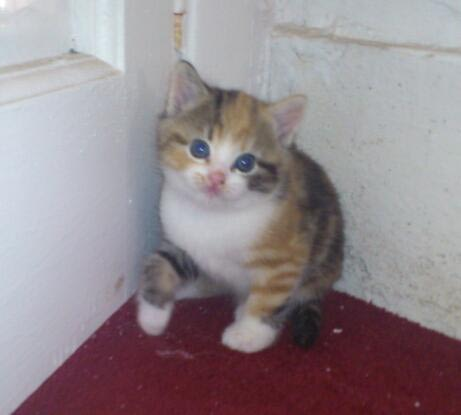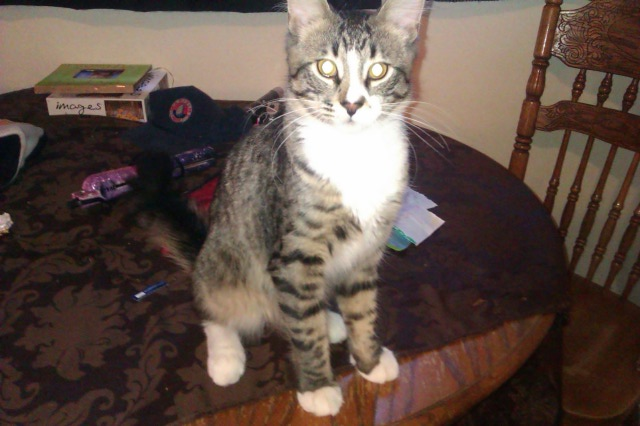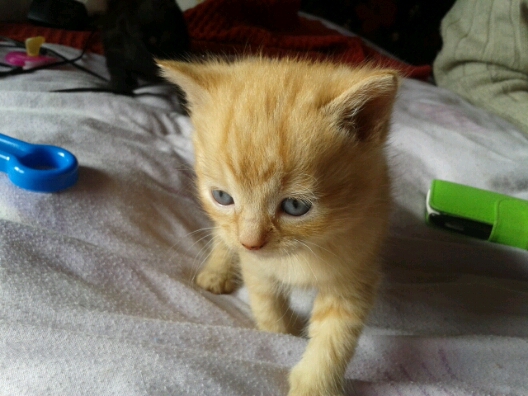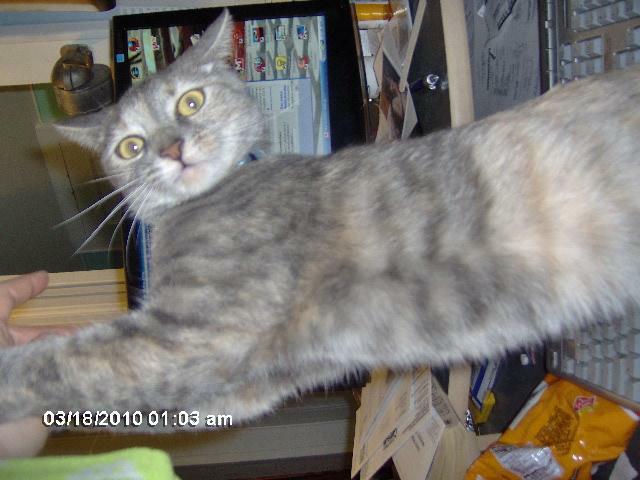QuestionI began feeding the feral cats that have taken up residency in a large shed on my property. I did this after I noticed they had a litter of kittens around Thanksgiving 2009. I thought it would be better to feed them instead of giving my money to Shelters or the Humane Society. I do realize they will go on breeding, but if there was a substance that could be mixed into their food that would render either the males or females sterile, I would be willing to give it a try. Is there any "birth control" substance that could be added to the food? If there is not - Why is someone not working on this? It could provide a solution to the feral cat problem all over this country.
AnswerHi Vicky. Thanks for helping out these kitties! By far, the best way to deal with the problem is to spay and neuter feral cats. This permanently terminates the risk of reproduction, even if cats decide to leave the colony. It also has health benefits, especially for females, such as reduced risk of deadly uterine infections or mammary cancer. There is a large trap-neuter-return movement that is starting to take hold in many countries, and it's gaining popularity. You might be able to find help paying for the surgeries at:
www.neuterspay.org
www.spayusa.org
http://www.lovethatcat.com/spayneuter.html
Or, call local vets and see if they know of any trap-neuter-return organizations they can put you in touch with. They often have clinics where they can get cats in for little or no cost to you.
However, there IS "birth control" that can be used for feral cats. It comes in a powder that is sprinkled onto food, and you feed it to the whole colony. It prevents females from going into heat. See www.feralstat.com. The negatives of this - it may be a temporary solution. If the cats stop eating the food, they are able to reproduce. And it does nothing to affect male fertility, so they can impregnate any female who comes along that hasn't been ingesting the food you feed. Also, it may have serious health consequences in both males and females, including diabetes and mammary cancer. Nonetheless, it remains an option.
Best of luck!
Jessica

 is my male kitten a tortoiseshell?
Question
our wee guy our wee guy
Hi,
I am
is my male kitten a tortoiseshell?
Question
our wee guy our wee guy
Hi,
I am
 What Breed Is My Cat ??
Question
Cloud1 Cloud2
Hey, my boyfriend a
What Breed Is My Cat ??
Question
Cloud1 Cloud2
Hey, my boyfriend a
 cat identification
Question
pic was from my phone,
i am currently f
cat identification
Question
pic was from my phone,
i am currently f
 Two Kittens from different litters?
Question
Ginger Female
We wanted to get 2 kitten
Two Kittens from different litters?
Question
Ginger Female
We wanted to get 2 kitten
 my cat is REALLY long, like a weasel!
QuestionQUESTION: Im hoping you can help me identify my
my cat is REALLY long, like a weasel!
QuestionQUESTION: Im hoping you can help me identify my